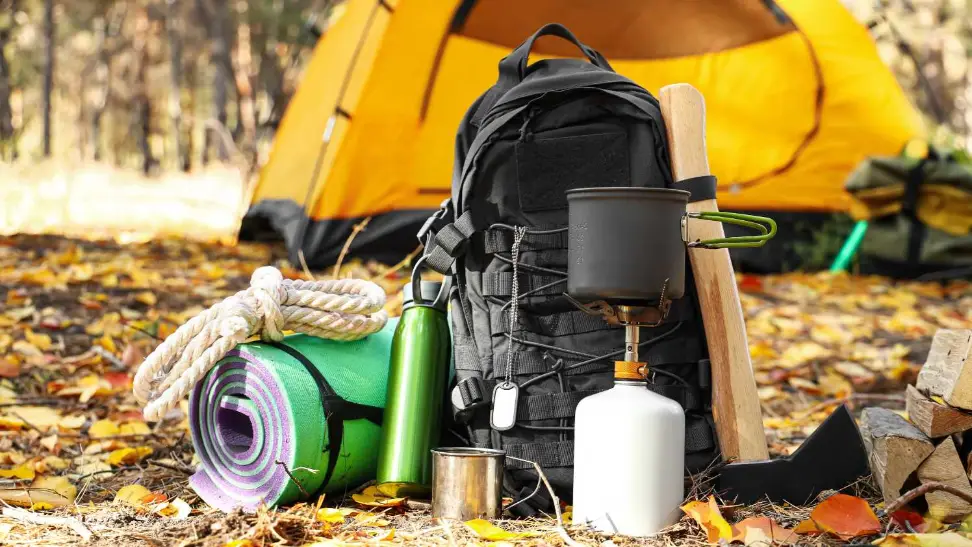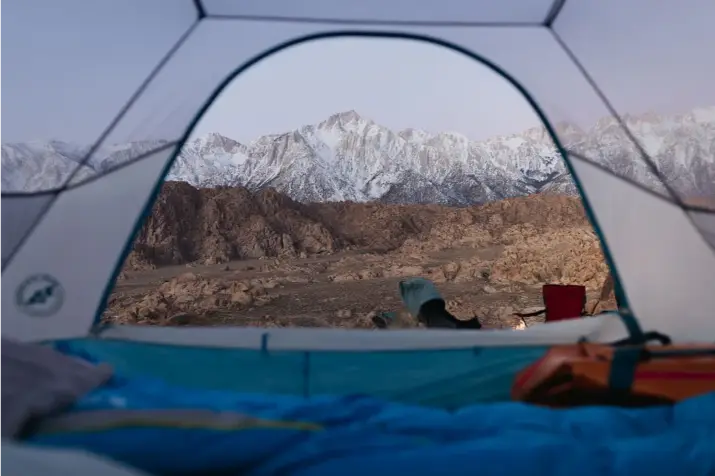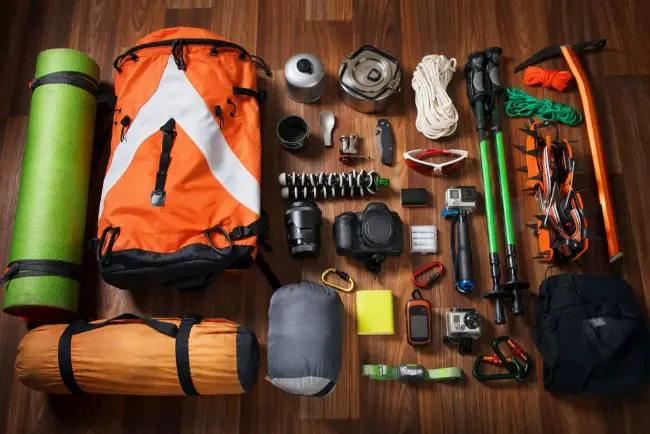If you are getting ready for a long-distance trip, you have probably encountered the age-old difficulty of lightening your pack weight. Reducing physical strain, lightening your burden will help your trip be more fun, and even hasten your hike. Luckily, experienced through-hikers have perfected the art of lightweight packing; their guidance can help you reduce backpack weight by as much as half. This book will go over doable strategies from through-hikers for reaching a smaller load without compromising comfort or safety.
Why Reducing Backpack Weight is Important
Every ounce you carry on your behind counts. That extra weight can gradually slow you down, wear you out more quickly, and raise your risk of injury. Reducing pack weight is essential for thru-hikers—those who travel lengthy distances such as the Appalachian or Pacific Crest Trail. A smaller load lets you recuperate faster, cover more kilometres every day, and eventually enjoy the trip more.
Often discussing “base weight,” which is the weight of your pack with fewer consumables like food and water, thru-hikers can travel lighter and more quickly by concentrating on lowering base weight.
Perform a Gear Weight Analysis

Doing a careful weight study of your gear will help you to half your pack weight. From your tent to your toothbrush, catalogue whatever you intend to carry. Weigh every item using a scale; record it in a gear-tracking program or a spreadsheet. This will help you to see clearly where most of your weight falls.
Once your gear weights are known, name the heaviest objects. Are better substitutes for them available? Changing to an ultralight tent, for instance, might save some pounds. By choosing wisely what to carry and what to leave behind, one aims to lighten the weight of a rucksack.
Invest in Ultralight Gear
Purchasing ultralight equipment is among the best strategies to cut your pack weight. Thanks to developments in gear technology over the years, lightweight choices free of compromise on comfort or quality are more readily available than ever.
Popular products include ultralight tents, sleeping bags, and backpacks—especially made for thru-hikers trying to lighten their load. Reliable, ultralight goods have made brands including Zpacks, Hyperlite Mountain Gear, and Big Agnes well-known. Although ultralight equipment can be expensive, the considerable weight reductions it offers usually make the investment well worth it.
When choosing gear, search for robust but far lighter than conventional materials created from lightweight fibres like Dyneema or Silnylon.
Embrace Multi-Use Items
Using multipurpose products is another important tactic for reducing backpack weight. These are things you might use on the trail for multiple purposes, therefore reducing the overall gear you should pack. As a result:
- For your shelter, trekking poles also double as tent poles.
- One can make a towel, head cover, or even a water filter using bandanas.
- Sleeping quilts serve as camp blankets and sleeping bags alike.
Selecting multipurpose products can help you reduce backpack weight and gear duplicity and lighten your load without compromising usefulness.
Minimalist Packing Strategies

Fundamentally, ultralight hiking is about learning to pack simply. This means leaving behind the “just-in-case” stuff that usually weighs us down and carrying just what you need. Thru-hikers sometimes laugh about how their first pack included pointless goods like additional shoes, heavy electronics, or even camp chairs.
To adopt minimalist packing, ask yourself these questions as you pack:
- Do I really need this item, or can I make do without it?
- Can I replace this item with something lighter or a multi-use item?
- What’s the lightest version of this item I can bring?
Examining every item in your pack will help you to greatly reduce base weight and simplify your equipment for a more pleasant climb.
Swap for Lightweight Fabrics
Regarding clothes, your whole pack weight may be much influenced by the fibres you choose. Thru-hiker tips include choosing lightweight, durable materials that are free of extra weight. Search for materials like nylon, polyester mixes, or merino wool that dry fast and offer warmth without mass.
For ultralight hikers, merino wool base layers are particularly popular since they are lightweight, moisture-wicking, and naturally odor-resistant. Selecting lightweight materials for your hiking gear will help you keep you comfortable on the trail while lightening the weight of your bag.
Opt for Gear Alternatives
Cutting weight often involves using your gear creatively. Experts in identifying gear substitutes that weigh much less but perform just as well as conventional gear are thru-hikers. These are some samples:
- While a tent provides more protection, a tarp is far lighter and can still keep you dry in most circumstances.
- Alcohol stoves replace gas canister stoves: A favourite among thru-hikers for boiling water, alcohol stoves weigh nearly nothing.
- Inflatable cushions give better comfort with less weight than foam pads.
Experimenting with gear substitutes will help you to reduce backpack weight without sacrificing necessary supplies.
Reevaluate Your Base Weight
Finally, maintaining the slight weight of your pack depends on constant evaluation of your base weight. Spend some time considering what worked and what didn’t following every climb. Were there things you never touched, or did you use everything in your pack? Next time, could you replace heavier equipment with lighter models?
Before they find their optimal base weight reduction, many thru-hikers complete several rounds of weight analysis. The secret is to continually seek methods to lessen your load and to be aware of what you carry.
Conclusion
Halfing your pack weight doesn’t have to be a difficult chore. Following these guidelines from seasoned through-hikers will help you progressively reduce backpack weight while still ensuring trail comfort and safety. To get a lighter, more fun hiking experience, concentrate on buying lightweight gear, adopting multipurpose products, and constantly changing your base weight.
Thus, keep in mind that every little one counts whether your trip is multi-day or only meant to simplify your weekend excursions. These techniques will help you to be on your way to a speedier, lighter, and more fun adventure.

